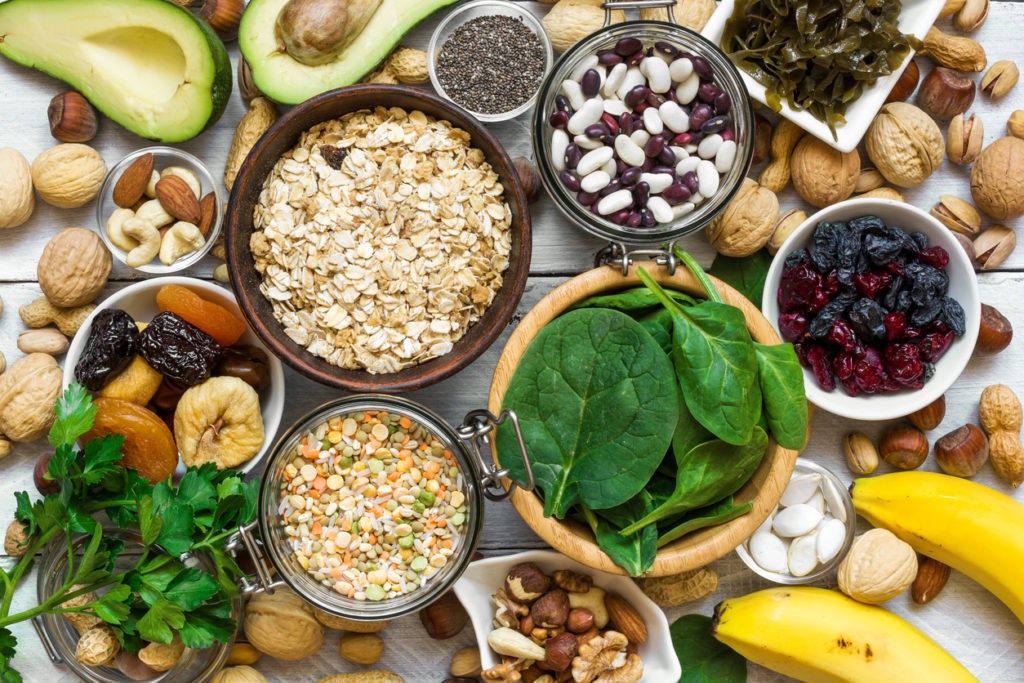1. Iron deficiency
Iron deficiency affects more than 25% of people around the world, making it one of the most common nutrient deficiencies.
Iron is important for producing haemoglobin, a protein that helps red blood cells deliver oxygen throughout your body. Without it, everything suffers, and it could lead to anaemia.
Signs of an iron deficiency include fatigue, pale skin, headaches and hair loss.
Click here to read the 10 signs of an iron deficiency.

2. Magnesium deficiency
Magnesium is an essential mineral that’s involved in more than 300 of the body’s metabolic enzymatic reactions.
Like other essential nutrients, the body needs magnesium for lots of vital functions. This includes regulating hormones, nerve and muscle functioning, blood pressure control, blood sugar regulation and immune health.
Studies show that almost half of the US population doesn’t consume enough magnesium in their diet.
A magnesium deficiency are linked to several health conditions, such as type 2 diabetes, heart disease and osteoporosis.
Find out the signs you might be lacking in magnesium – plus the best magnesium-rich foods.

3. Vitamin B12 deficiency
Vitamin B12 is one of the essential vitamins that our bodies need but cannot produce. It is found in many animal-based foods such as beef, tuna, salmon, dairy and eggs.
Older adults and vegetarians/vegans tend to have lower levels of B12, and as a result, B12 deficiency is common, affecting up to 15% of the general population.
B12 supports the all-important formation of red blood cells, helping prevent anaemia, maintain the nervous system and strengthen bone health.
Learn the 5 signs of a B12 deficiency.
4. Iodine deficiency
One of the most common nutrient deficiencies, Iodine is an essential mineral needed for thyroid function and hormone production.
Brain development, growth and bone maintenance all require thyroid hormones, which in turn, makes iodine an important part of a healthy diet.
A common symptom of iodine deficiency is a goiter, meaning an enlarged thyroid gland. This can cause your heart rate to increase, shortness of breath and weight gain.
Seaweed is one food that’s packed with iodine.
Learn more about the health benefits of this iodine-rich superfood.

5. Vitamin D deficiency
According to a 2008 study, almost 1 billion people suffer from inadequate levels of vitamin D.
It plays a crucial role in aiding the absorption of calcium, maintaining bone density and reducing risk of injury. If you don’t get enough vitamin D, you can struggle with frequent colds, respiratory symptoms and tiredness.
Long-term vitamin D deficiencies have been linked to several autoimmune diseases, cancers, cardiovascular problems, immunity issues and hypertension.
Click here to read more about the importance of vitamin D.
6. Calcium deficiency
Calcium plays an important role in the body’s growth and development. It mineralizes bones and teeth and is vital for healthy bone maintenance.
Excess calcium is stored in bones. The bones will release calcium if your intake is lacking. This is osteoporosis is a typical sign of calcium deficiency.
A survey in 2012 found that over half of all Australians aged two years and over don’t get enough calcium in their diet.
Boned fish, dairy products and dark green vegetables are all high in calcium.







